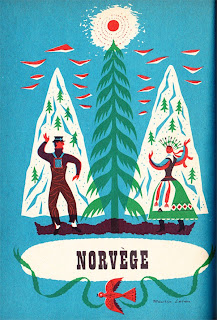There are plenty of sites out there telling you what to
take to hospital with you when you have a baby. For example this one, or this one. There’s even an NHS video:
So I'll save us both another exhaustive list and just focus on a few things I liked having in hospital.
As they mention in that video, its important to pack your bag a good 3 or 4 weeks before your due date, just in case, and write a list of extra things that you'll need to put in last minute.
So I'll save us both another exhaustive list and just focus on a few things I liked having in hospital.
As they mention in that video, its important to pack your bag a good 3 or 4 weeks before your due date, just in case, and write a list of extra things that you'll need to put in last minute.
Coconut Water
This helps to keep you hydrated during labour. I took a couple of cartons of coconut water with me to sip in between glasses of water.
 |
| Thirst quenching coconut water |
iPod Speakers
It was great to be able to listen to music during the birth - make a few playlists beforehand. Your labour room will be a little sanctuary in no time.
 |
| Conran Audio Speaker Dock |
Organic Shampoo
I had a shower in my room and it was great to take a shower and wash my hair during labour. I found that this Jason shampoo was also great for the days following the birth as it is clean and sensitive.
 |
| Pure and natural toiletries |
Lip Balm
It's easy to get dehydrated during labour, so take a lip balm. This Lanolips balm is my newest beauty discovery. Made of 100% of Ultra Pure Medical Grade lanolin, its so natural that it can even be used on the mouths of new born babies!
 |
| A wonder product |
Natural Deodorant
The aluminium in most deodorants is said to be bad for the baby when you're breastfeeding (this is disputed, but I didn't want to risk it). I use this amazing Lush T'eo natural deodorant powder. I've heard that the Burts Bees deodorant is also a good alternative.
 |
| Natural antibacterial deodorant |
A Soft Towel
It was really nice to have a gigantic, fluffy towel with me when in hospital. You should take really soft one, because you'll be sore after the birth. I love the Cath Kidson bath sheets.
 |
| Hampton Rose bath sheet |
A Button-Down Nightie
Take something cotton and comfortable with buttons down the front for breastfeeding. This John Lewis checked nightshirt would be perfect with a cosy bath robe on top.
 |
| A baggy nightshirt |
Baby's First Outfit
You'll need to have a little outfit ready for the baby after they come out. I had a beautiful sleepsuit all covered with leaves. Pick something that's quite cosy, as they are often a bit cold after they're born. The Petit Bateau sleepsuits are lovely.
 |
| A Petit Bateau sleepsuit |
A Blanket
The mother of Lyra's godmother bought her a beautiful satin edged cellular blanket from The White Company. If I'd have had it for when she was born, I'd have certainly taken it with me to wrap her up in.
 |
| Beautiful soft blankets |
Muslins
As well as a blanket, it's a good idea to take some muslins with you. The absolute best ones in my eyes are the Aden + Anais ones. I use the giraffe print muslin blanket all the time.
 |
| Fresh muslins |
Nursing bras
I found that John Lewis has some really nice ones, like this Elle Macpherson Intimates bra. You'll need one of these following birth, as well as some breast pads. The milk which is first produced after the birth is the best thing you can give to your baby, better than anything money could buy!
 |


